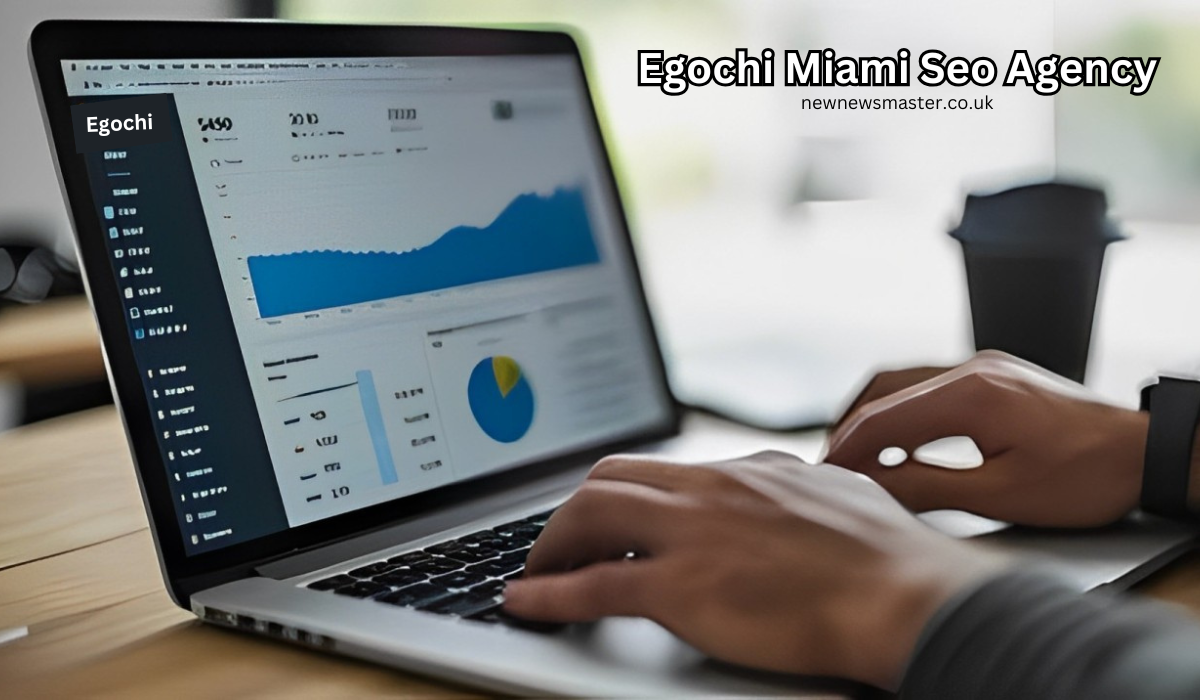Discover expert strategies from How to Get on First Page of Google Search David Aziz. Learn essential steps like keyword research, on-page optimization, content creation, and backlink building.
Introduction
When it comes to improving your website’s visibility, getting on the first page of Google search results is a goal that every website owner aims for. With billions of searches made every day, ranking high on Google is crucial to driving traffic to your site. David Aziz, a renowned SEO expert, has outlined a comprehensive strategy to help you achieve this goal. By following his advice, you can significantly enhance your website’s search engine optimization (SEO) and increase your chances of landing on the first page of Google. In this blog post, we will walk you through the key steps that David Aziz recommends for boosting your website’s ranking. We will explore keyword research, on-page optimization, high-quality content creation, backlink building, technical SEO, local SEO, and continuous monitoring. Each of these components plays a vital role in your overall SEO strategy, and when applied correctly.
Understanding the Importance of SEO
Search Engine Optimization (SEO) refers to the process of optimizing your website to improve its visibility on search engines like Google. With over 90% of online experiences beginning with a search engine, SEO is a powerful tool for increasing organic traffic. Google’s algorithms are designed to rank websites based on various factors such as relevancy, authority, and user experience. To get on the first page of Google search results, you need to ensure that your website meets these criteria. SEO is not a one-time task; it requires continuous effort and adaptation to the ever-changing search engine algorithms. David Aziz emphasizes the importance of staying updated with the latest SEO trends and best practices to maintain a competitive edge.
Keyword Research: Laying the Foundation for Success
One of the first and most crucial steps in SEO is keyword research. Without identifying the right keywords to target, you will struggle to rank for the terms your potential audience is searching for. David Aziz recommends using tools like Google Keyword Planner, SEMrush, and Ahrefs to uncover high-search-volume keywords that are relevant to your niche. These tools help you analyze search trends, competition, and keyword difficulty, which are all important factors in selecting the right keywords. The goal is to find keywords that strike the perfect balance between search volume and competition. By targeting the right keywords, you can ensure that your content aligns with what users are searching for, making it more likely that your pages will rank higher on Google.
On-Page Optimization for Better Visibility
Once you have identified your target keywords, the next step is on-page optimization. This involves optimizing the content and structure of your website to make it more search-engine-friendly. According to David Aziz, on-page SEO is crucial for improving your rankings, and it includes optimizing elements such as title tags, meta descriptions, header tags, and URL structure. The title tag is one of the most important elements for SEO, as it tells both search engines and users what your page is about. Including your target keyword in the title tag can significantly improve your chances of ranking for that keyword. Similarly, the meta description should provide a concise summary of your content while incorporating relevant keywords. Header tags (H1, H2, H3, etc.) help structure your content and make it easier for both search engines and users to understand the flow of information. Additionally, ensuring that your URLs are clean.
High-Quality Content Creation
Content is king when it comes to SEO, and David Aziz emphasizes the need for high-quality, engaging, and informative content. Google’s algorithms are designed to prioritize content that provides value to users. When creating content for your website, it is essential to focus on addressing the needs and interests of your target audience. High-quality content can take many forms, including blog posts, articles, videos, infographics, and more. However, the key is to ensure that your content is original, well-researched, and answers the questions that users are asking. Additionally, optimizing your content with relevant keywords is important, but it should be done naturally and not forced. Overstuffing your content with keywords can lead to penalties from Google. David Aziz advises that instead of focusing solely on keywords, the goal should be to create content that answers the user’s query comprehensively and in an engaging way.

The Power of Backlink Building
Backlinks are one of the most powerful ranking factors in SEO. A backlink is a link from another website that points to your page, signaling to Google that your content is authoritative and trustworthy. David Aziz stresses the importance of building a strong backlink profile to improve your website’s authority and search ranking. However, not all backlinks are created equal. The quality of the backlinks you acquire matters more than the quantity. Acquiring backlinks from reputable, high-authority websites within your niche can significantly boost your rankings. To build backlinks, you can focus on strategies such as guest blogging, influencer outreach, and creating shareable content that naturally attracts links. Another effective strategy is to reach out to websites that have linked to similar content and ask them to link to your content as well.
Technical SEO for a Solid Foundation
While content and backlinks are important, technical SEO is equally crucial for ensuring that your website is optimized for search engines. David Aziz highlights the significance of optimizing your website’s technical elements, such as page speed, mobile responsiveness, and crawlability. A slow-loading website can lead to high bounce rates, which negatively impact your rankings. Therefore, optimizing your website’s speed is essential for both user experience and SEO. Ensuring that your website is mobile-friendly is also critical, as Google prioritizes mobile-first indexing. This means that Google considers the mobile version of your website as the primary version when determining your search rankings. Additionally, fixing crawl errors, ensuring proper indexing, and using structured data markup can help search engines better understand your website’s content, leading to improved rankings.
Local SEO for Businesses with a Physical Presence
For businesses with a physical location, local SEO is an essential component of your SEO strategy. Local SEO focuses on optimizing your website for location-based searches, ensuring that your business appears in local search results. David Aziz recommends optimizing your Google My Business (GMB) profile, using location-specific keywords, and encouraging customer reviews. A fully optimized GMB profile can help you appear in the local pack, which is the section of Google search results that displays local businesses. Additionally, using location-based keywords throughout your website and content can help improve your visibility in local search results. Encouraging satisfied customers to leave reviews on Google and other platforms can also boost your local SEO efforts, as positive reviews signal to Google that your business is trustworthy and relevant.
Monitor Your Performance and Adjust Accordingly
SEO is an ongoing process, and it’s essential to continuously monitor your website’s performance to track your progress and make adjustments as needed. David Aziz emphasizes the importance of using tools like Google Analytics and Google Search Console to gather valuable data about your website’s traffic and performance. These tools provide insights into key metrics such as organic search traffic, keyword rankings, bounce rates, and more. By regularly analyzing this data, you can identify areas where your website may be underperforming and make data-driven decisions to improve your SEO strategy. For example, if you notice that a particular page is not performing as well as expected, you can optimize it further by adding more valuable content, improving its structure, or building additional backlinks.
Staying Updated with SEO Trends
SEO is constantly evolving, with search engine algorithms frequently being updated to provide users with more relevant and high-quality results. David Aziz stresses the importance of staying updated with the latest SEO trends and algorithm changes. Following SEO blogs, attending webinars, and participating in online communities can help you stay informed about the latest developments in the world of SEO. Adapting your strategy to align with new best practices and algorithm updates is essential for maintaining your rankings and staying ahead of the competition. Google’s algorithms are designed to prioritize user experience, so focusing on providing value and meeting the needs of your audience will always be a solid SEO strategy.

The Role of User Experience (UX) in SEO
User experience (UX) is another critical factor that can influence your website’s search rankings. Google considers factors like page loading time, mobile responsiveness, and ease of navigation when determining the quality of a website’s user experience. David Aziz emphasizes the need for a seamless, user-friendly experience across all devices. A website that is easy to navigate, visually appealing, and provides a smooth user experience is more likely to retain visitors and encourage them to engage with your content. Improving UX can lead to higher engagement metrics, such as longer time on site and lower bounce rates, which in turn can positively impact your SEO rankings.
The Importance of Social Signals
While social media does not directly impact SEO rankings, social signals can still play a role in boosting your website’s visibility. David Aziz notes that having an active presence on social media platforms can help drive traffic to your website and increase brand awareness. When your content is shared and discussed on social media, it signals to search engines that your content is relevant and worth paying attention to. Additionally, social media platforms can be a valuable source of backlinks and referral traffic, which can indirectly influence your SEO efforts. By promoting your content on social media and engaging with your audience, you can increase the chances of your content being discovered and shared, which can lead to more traffic and improved rankings.
SEO is a Long-Term Investment
It’s important to understand that SEO is a long-term strategy that requires patience and persistence. David Aziz advises that you should not expect immediate results, as it can take time for your efforts to show up in search rankings. However, the long-term benefits of SEO, such as sustained organic traffic and improved brand visibility, are well worth the effort. SEO requires ongoing optimization and adaptation to ensure that your website continues to rank well as search engine algorithms evolve. By consistently following best practices and focusing on providing value to your audience, you can gradually improve your website’s performance and secure a spot on the first page of Google search results.
Conclusion
Getting on the first page of Google search results is not an easy task, but with the right strategy, it is certainly achievable. By following the expert advice of David Aziz, you can optimize your website’s content, structure, and authority to improve your search rankings. Remember to focus on keyword research, on-page optimization, content creation, backlink building, technical SEO, and local SEO to create a well-rounded SEO strategy. Additionally, continuously monitor your performance, stay updated with SEO trends, and provide a seamless user experience to ensure long-term success. With dedication and persistence, you can increase your chances of ranking on the first page of Google and driving more organic traffic to your website.


